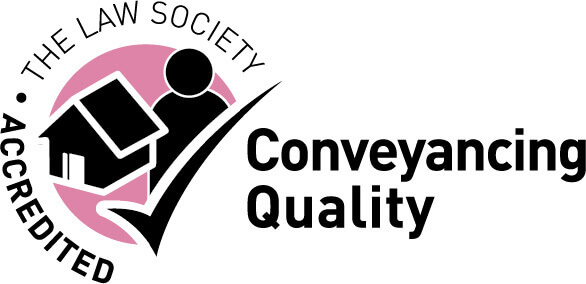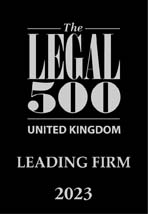‘Stealth tax’ to impact upon the bereaved
A controversial increase in probate fees is due to come in from April 2019.
“A massive probate fee rise will hit many bereaved families and may lead to inadvisable and inappropriate measures to avoid paying what has been labelled a ‘stealth tax’,” says Jonathan Edwards, Senior Chartered Legal Executive in our Private Client Department.
American founding father Benjamin Franklin famously said that the only certainties in life were ‘death and taxes.’ While the Government would deny that the massive hike in probate fees from April this year amounts to a ‘stealth tax’, many families will be more concerned as to the massive costs than the semantics deployed.
When people discuss ‘probate’, they are referring to the legal authority which gives executors or personal representatives a right to administer a deceased’s estate. The Probate Registry will issue a Grant of Representation (‘Probate’ or Administration’) so that the estate can be administered. A Grant is needed where land is owned in the name of the deceased or where assets are of sufficient value for the asset holders (such as banks or building societies) to require sight of the Grant.
The current fixed fee for probate applications is £155 (if application is made through a solicitor) or £215 for a personal application. However, the Government proposes that from April 2019 the fees will be graduated depending upon the value of the estate. This has been labelled a “stealth tax” by critics and SAGA have highlighted claims that potentially 1 in 5 families who pay fees will need to find at least £2,500 when making the application for a Grant. Another burden at an already stressful time for families following a bereavement, will be that the executors will need to pay the fee “up front” – as is also necessary for Inheritance Tax.
The proposed fee structure means that estates below £50,000 in value will be exempted. This is a vast improvement on the current threshold of £5,000 and the Government rightly herald this as a benefit for smaller estates. However, many families will be hit hard by the proposed changes.
Proposed fee structure
| Estate Value | Probate Fee |
| £0 – £50,000 | No fee |
| £50,000 – £300,000 | £250 |
| £300,000 – £500,000 | £750 |
| £500,000 – £1,000,000 | £2,500 |
| £1,000,000 – £1,600,000 | £4,000 |
| £1,600,000 – £2,000,000 | £5,000 |
| £2,000,000 + | £6,000 |
A previous governmental attempt to increase the fees was abandoned in 2017. The previous proposals were heavily criticised by a cross party committee of MPs and Peers, and would have led to even greater fee increases if enacted.
To the dismay of private client practitioners and many others, the proposals have now resurfaced, albeit in amended form, and the Government is intent on introducing the new fee structure (with the stated aim of providing much needed funds for the court service) in April 2019.
Consequences of the fee increases
Apart from distress for the bereaved, there are potentially dangerous consequences from the fee increases.
Firstly, families may look to avoid probate fees by transferring money and property into joint names during their lifetimes. Where assets such as houses and bank accounts are jointly owned they will pass to the survivor without the need for a Grant of Representation. This may sound attractive, and does greatly simplify matters on the death of the first spouse. However, surviving spouses may decide to use this survivorship principle to add children as joint owners of assets, to avoid probate fees upon their own death. This involves considerable potential risk: children may face matrimonial or financial difficulties themselves that can impact significantly upon those who transferred the assets in the hope of protecting them! It also poses a problem where parents and children subsequently ‘fall-out’ – which does happen more often than you might believe.
Secondly, there is also a risk that families will move away from making Wills and rely far more upon making lifetime gifts which could create greater inequality between children leading to family arguments and the ultimate wishes of the deceased not being fulfilled. It may also lead to difficulties with ‘deprivation of assets’ where assistance with care home fees is later sought, and leave the client short of cash themselves! Of course, lifetime gifts are an important part of good estate planning where inheritance tax is an issue, but this is certainly not always the case, especially given the use of the transferable Nil Rate Band and introduction of the Residence Nil Rate Band. To make lifetime gifts purely to avoid probate fees would not generally be recommended.
Thirdly, Executors and personal representatives have a responsibility to gather a full picture of the deceased’s estate, and to complete the appropriate Inheritance Tax account after making full enquiries. If bereaved families act with understandable haste to apply for the Grant of Representation before the April fee increase, they may find that they have compromised their legal duties and submitted inaccurate information to HM Revenue and Customs, which could result in financial penalties.
At this point, it should also be mentioned that the cost of copy death certificates increased from £4 to £11 from the 16th February this year. Not as significant, but most unwelcome!
In general terms, it is still advisable to make a Will setting out your wishes (a Grant will be required even without a Will where the assets demand it) and to take professional advice as to your Will, lifetime planning or the administration of an estate after death. It may be that greater fees will be unavoidable if a Grant of Representation is needed but the alternatives carry risks too.
How can we help?
This article should not be taken to constitute specific legal advice and provides general commentary upon the proposed changes to probate fees. If specific advice on Wills, estate planning or estate administration is required then please contact Jonathan Edwards on 01743 237698, or our office in Shrewsbury 01743 248545, Harlescott 01743 467641 or Whitchurch 01948 663361.





